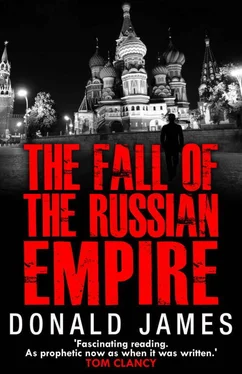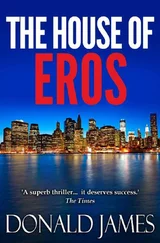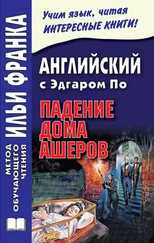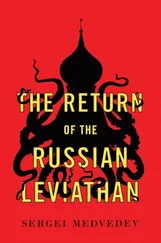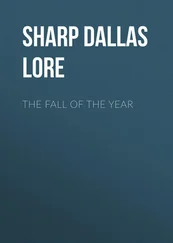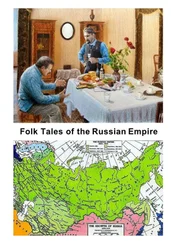“Ah, but you were a child then. Sixteen.”
“Seventeen. And desperately in love with you from our first meeting.”
He pulled me up toward him. “How can a man without words say what he feels about you, Zoyushka?”
We lay silent together.
“In the West,” he said, “lovers swear some sort of oath. ‘For richer, for poorer, in sickness and in health…’” he rolled on top of me, parting my legs… “with my body I thee worship.”
When Bubo and Anton had recovered consciousness that last night in Panaka, not all of the penals had marched away with Barkut Khan.
Many who hated and feared the Khans had hidden in the forest. Others simply slept through the departure. On the appel-square that day they had gathered under the only leader they knew, Bubo, whom some of them had worked with in the woods.
Since that day they had battled their way out of the far north. In Krasibirsk they had found an old locomotive in a siding and succeeded in hitching a string of cattle trucks to it. After a journey of nearly 250 miles they had been attacked by a militia unit and scattered in the snow forests. When the survivors re-formed they had marched on the next town and fought a pitched battle with staves and flying rocks against other penals. Somewhere outside the town they had found buses and trucks and in them completed another vast section of the journey. Then they had found the horses. In an abandoned cavalry stable outside Vologda where they were intending to sleep the night they had found stall upon stall, in five great stable blocks, of shaggy cossack ponies. Their former riders, a Kirghiz National Division, had deserted with an earlier trainload of penals, one of the many units on the penals’ route home which simply joined them in those wild times.
The old Russian grooms had handed the horses over without complaint and Bubo’s ragbag army had become a mounted unit.
Our gentle friend Bubo kept discipline with a ferocity which shocked Laryssa and me. He would have a man flogged or even shot for failure to carry out an order. And yet, at any time, a man could announce that he no longer intended to ride with Bubo and would then be free to leave unmolested. As a system it seemed to work. These strange men, changed in God knows what fashion by their experiences, worshiped their limping leader.
In the station the cattle trucks had been loaded with horses, the boiler filled with water and the tender piled high with coal. A messenger came up to find Anton and myself to say that food and ammunition were being loaded now. The train would be ready to leave at any time Bubo ordered.
Until this point I had not even thought about what happened next. I was with Anton again; Laryssa was with Bubo. After the nights at Krasibirsk and the nights of horror with the wolves, it was enough to be here.
But more serious decisions were afoot. Sadder ones, too.
Bubo, I think must have read my thoughts when we returned to Lenin Square.
“Some things have changed, Zoyenka,” he said gently. “We should talk now.”
His tone was enough. I nodded although not understanding. Anton’s face was suddenly set and troubled. Laryssa became silent.
“Great things are about to happen in Moscow,” Bubo began. “Or at least we believe and hope so. There are tens of thousands of penals there already. Thousands more are coming in from the north every day. According to the telex upstairs, in the eastern suburbs there’s already fighting. Over a hundred thousand men, some with weapons, have organized themselves into Gulag Regiments. It could be that just one more push is needed.”
I told him I didn’t understand. I looked at Anton but he was biting his lip, looking down at the carpet.
“This whole area north of Moscow is already out of control,” Bubo said urgently. “Not only the penals but some of the regular Army divisions have broken loose. Asiatic units here in Vologda have refused to attack us and have turned over their arms instead…”
“You want to overthrow the government?” Laryssa said in an awed voice. “Overthrow the Party?”
“I want to string up every corrupt judge and every camp guard. I want to burn every Security Board record, I want to catch the vlasti in their big apartments and turn them out into the snow to work. I want to tear down this whole stinking pigsty that they’ve built on Lenin’s Revolution. And if I can’t,” he said, “I want to tear down Moscow with my bare hands.”
I looked at him in amazement.
“I’m not mad, Zoyenka,” he said quietly. “Or not more mad than I have every right to be, or any of us has. But by God what it’s done to us, that city!” His voice rose again. “If ever there was a Babylon, Moscow it must be. Not a city of harmless lust and drink and idleness, but a true Babylonian seat of power, greed and cruelty, from Ivan the Terrible to Stalin the Cruel, from Leonid Brezhnev to Semyon Trofimovich Kuba. Moscow must be destroyed!”
Moscovia delenda est ran like a scarlet ribbon through my mind. Bubo was from Bratsk, I myself from Leningrad, others among Bubo’s penal followers were from the far corners of Moscow’s old empire. In those few moments I believed like Bubo that if Babylon was destroyed its empire of misery must crumble with it.
“No,” said Anton, his hand coming down flat on the table. “Our duty is to save ourselves. To take advantage of the anarchy and go south to a Black Sea port. We’re a few thousand men, perhaps tens of thousands, but what can we do against tanks and aircraft?”
“If we get into the city they’ll have to destroy Moscow to destroy us,” Bubo said.
“Then they’ll destroy Moscow, you know that,” Anton said.
“So be it,” Bubo grunted. “So be it.”
I of course knew where I stood, although much of what Bubo said appealed to my vengeful imagination. But for Laryssa it was different. Bubo put no weight on her. Far from it. “You have to decide, little one,” he said. “But I think you would be mad to come with me. Go south with Anton and Zoya. Find some fishing village with a boat to hire.”
He pulled out of his pocket a canvas bag and spilled coins on the table. They were English sovereigns, gold francs, silver dollars and a few heavy gold rubles. He reached down and took the gold rubles from the scatter of coins. “Take them, Anton,” he said. “Let them remind you of your mother’s gold ruble.”
The rest of the money he pushed back in the bag and handed it to Laryssa. She took it silently.
I ran round the desk to hug Bubo. Like Anton I had no wish to be there when Laryssa said good-bye.
She came stumbling out into the cold five minutes later. As we crunched across the frozen snow down to the station she was shaken by bouts of sobbing.
“We’ll take the last coach,” Anton said, as we picked our way through the burned-out station. “He’ll let us off in the outskirts of the city.”
That evening the train stopped in some Moscow suburb and Anton, Laryssa and myself climbed down onto the track.
As the train lumbered slowly away, the old-fashioned whistle blew twice, then twice again. Anton and I put our arms round Laryssa as we watched the last red light fade. I never saw Bubo again. And neither, of course, did Laryssa…
* * *
In the huge courtyard of the new American Embassy the green bus rolled forward and stopped under the eyes of the Marine guards.
As the American, British and German embassy staffs crossed toward it, David Butler ticked them off on his pad. Jack Bennerman, the American evacuation officer, waved to the driver as the door closed and the bus moved slowly away. The journey to Sheremetyevo Airport on the northwest of the city would take about forty minutes. There a Finnair 747 was waiting within the heavily guarded perimeter.
Читать дальше
